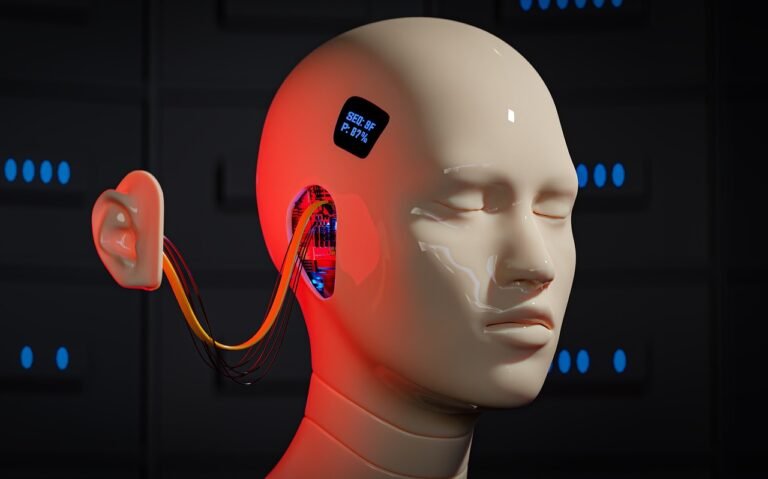
Introduction
Artificial Intelligence (AI) is no longer confined to the pages of science fiction—it’s an integral part of our present, and its influence is only growing. From personal assistants on our smartphones to advanced systems transforming industries, AI is shaping the future in ways we could once only imagine. In this post, we’ll explore how AI is revolutionizing our world and what that means for the future of humanity.
The Current Landscape of AI
AI encompasses a range of technologies that allow machines to perform tasks that typically require human intelligence. These tasks include problem-solving, recognizing speech and images, translating languages, and making decisions. Today, AI is making waves in various sectors:
- Healthcare:
- AI is improving diagnostics, enabling doctors to detect diseases like cancer at earlier stages through predictive analytics and image recognition.
- Personalized medicine is another area where AI excels. By analyzing patient data, AI can help tailor treatments to individual needs, leading to better outcomes.
- Finance:
- In finance, AI algorithms detect fraud by analyzing patterns and flagging unusual transactions in real-time, helping to protect customers and institutions.
- AI-driven robo-advisors provide personalized investment advice, making financial planning more accessible and affordable.
- Transportation:
- Autonomous vehicles are one of the most visible AI applications, with companies like Tesla and Waymo working towards a future where self-driving cars are the norm.
- AI is also optimizing logistics and supply chains, reducing delivery times and improving efficiency in the global movement of goods.
- Retail and E-commerce:
- AI-powered recommendation engines, such as those used by Amazon and Netflix, enhance the customer experience by suggesting products and content based on past behavior and preferences.
- Retailers are using AI to manage inventory, predict demand, and streamline their supply chains, resulting in lower costs and fewer stockouts.
How AI is Shaping Tomorrow
As AI technologies advance, their potential to shape our future becomes even more profound. Here are a few ways AI is expected to impact tomorrow’s world:
- Transforming Work and the Economy:
- Automation is set to replace repetitive and manual tasks, leading to increased efficiency but also significant shifts in the job market. While some jobs may be lost to automation, new roles in AI development, maintenance, and ethical oversight will emerge.
- AI-powered tools will enhance productivity, enabling workers to focus on more creative, strategic tasks, ultimately driving innovation and economic growth.
- Advancing Human Knowledge and Capabilities:
- AI is accelerating research and development across numerous fields. In science, for instance, AI systems can process and analyze vast amounts of data far more quickly than humans, enabling faster discoveries in fields like genomics, physics, and climate science.
- The concept of “augmented intelligence” suggests that AI will not replace humans but rather extend our capabilities. AI-powered tools can assist professionals—from doctors to engineers—enhancing their expertise and enabling them to tackle more complex challenges.
- Revolutionizing Education and Learning:
- AI is personalizing education by adapting learning experiences to individual students’ needs, helping them learn at their own pace and style. AI can analyze student performance and provide targeted resources, improving educational outcomes.
- Virtual classrooms and AI-driven tutoring systems are making quality education more accessible, potentially transforming how we learn and share knowledge worldwide.
- Enhancing Environmental Sustainability:
- AI is playing a key role in addressing climate change. By analyzing climate data, AI can help predict extreme weather events, allowing for better preparation and response.
- Smart systems powered by AI can optimize energy usage in buildings, reduce waste in manufacturing, and even aid in wildlife conservation efforts by monitoring endangered species and their habitats.
Ethical Considerations and Challenges
While the potential of AI is immense, it also brings challenges and ethical considerations that must be addressed as we shape our future:
- Privacy and Security:
- AI systems often rely on vast amounts of data, raising concerns about privacy and data security. Ensuring that AI is used responsibly, with robust data protection measures, is essential to maintain public trust.
- Bias and Fairness:
- AI algorithms can unintentionally reflect and amplify biases present in their training data. Addressing issues of fairness and transparency is critical to ensure that AI benefits all members of society equitably.
- Employment Displacement:
- The rise of automation may lead to job displacement in certain sectors. Preparing the workforce for these changes through retraining and education is crucial to mitigate potential economic disruption.
- Autonomy and Accountability:
- As AI becomes more autonomous, questions about accountability and decision-making arise. Ensuring that AI systems operate transparently and that there is human oversight is essential for maintaining ethical standards.